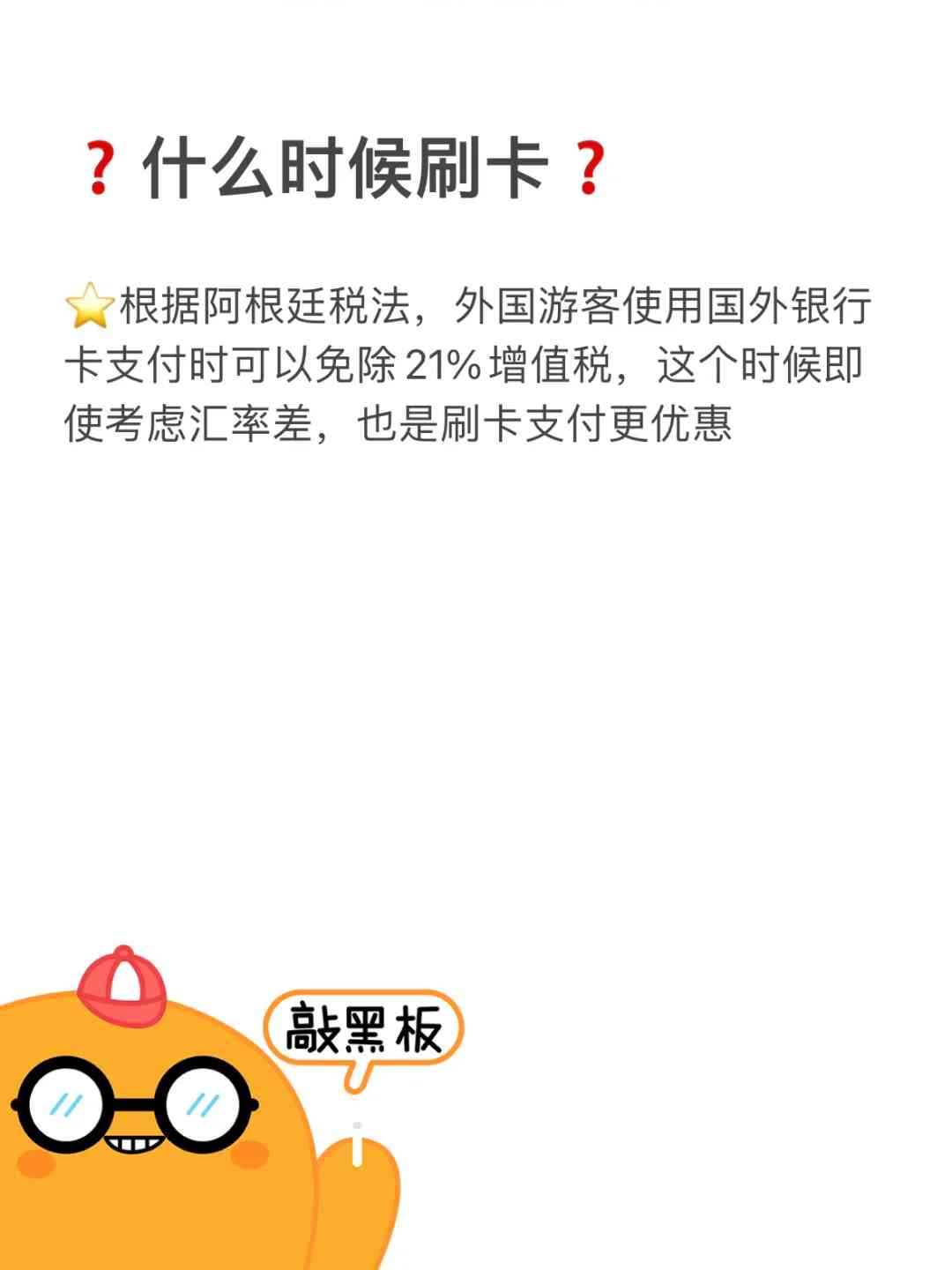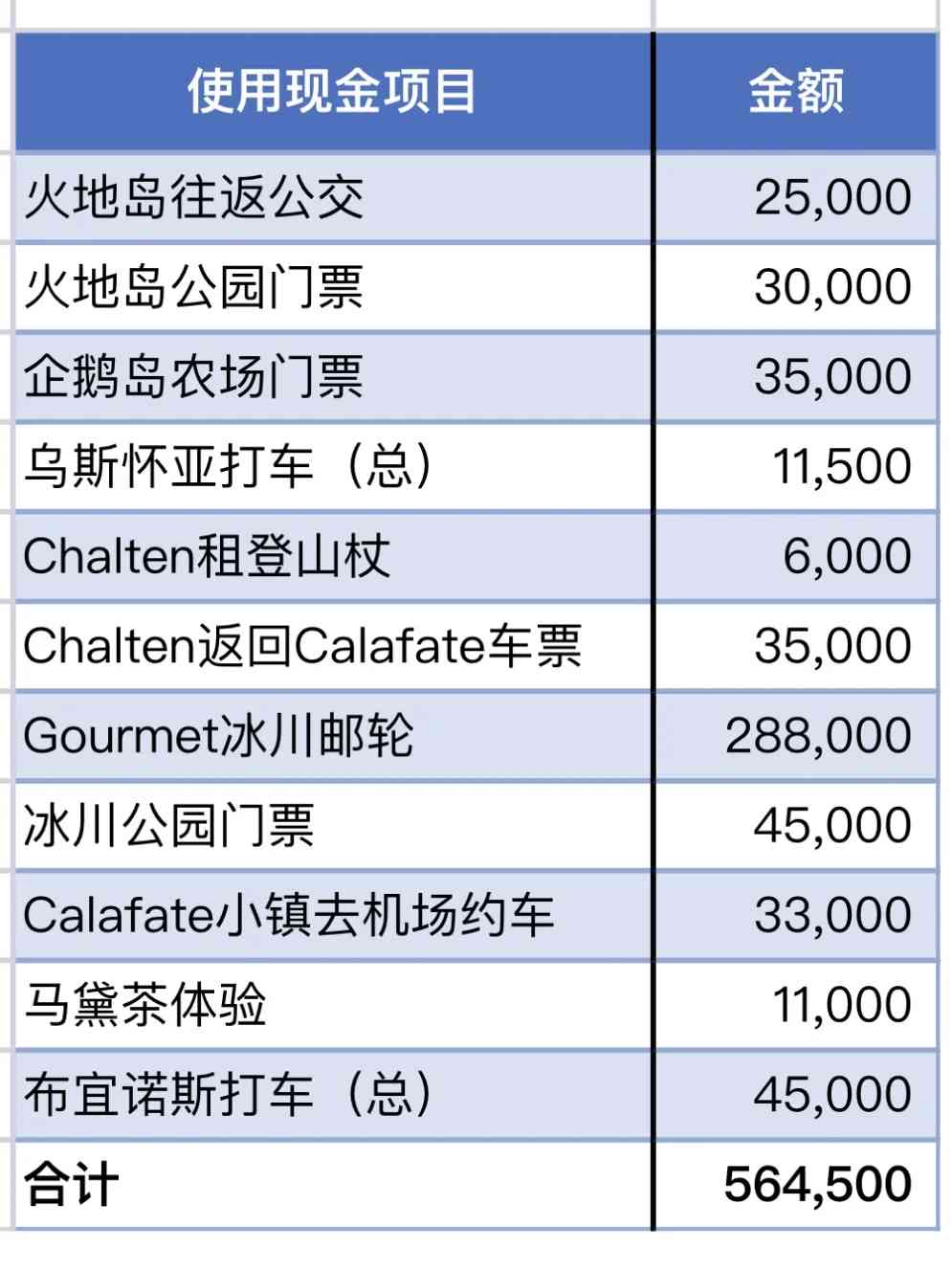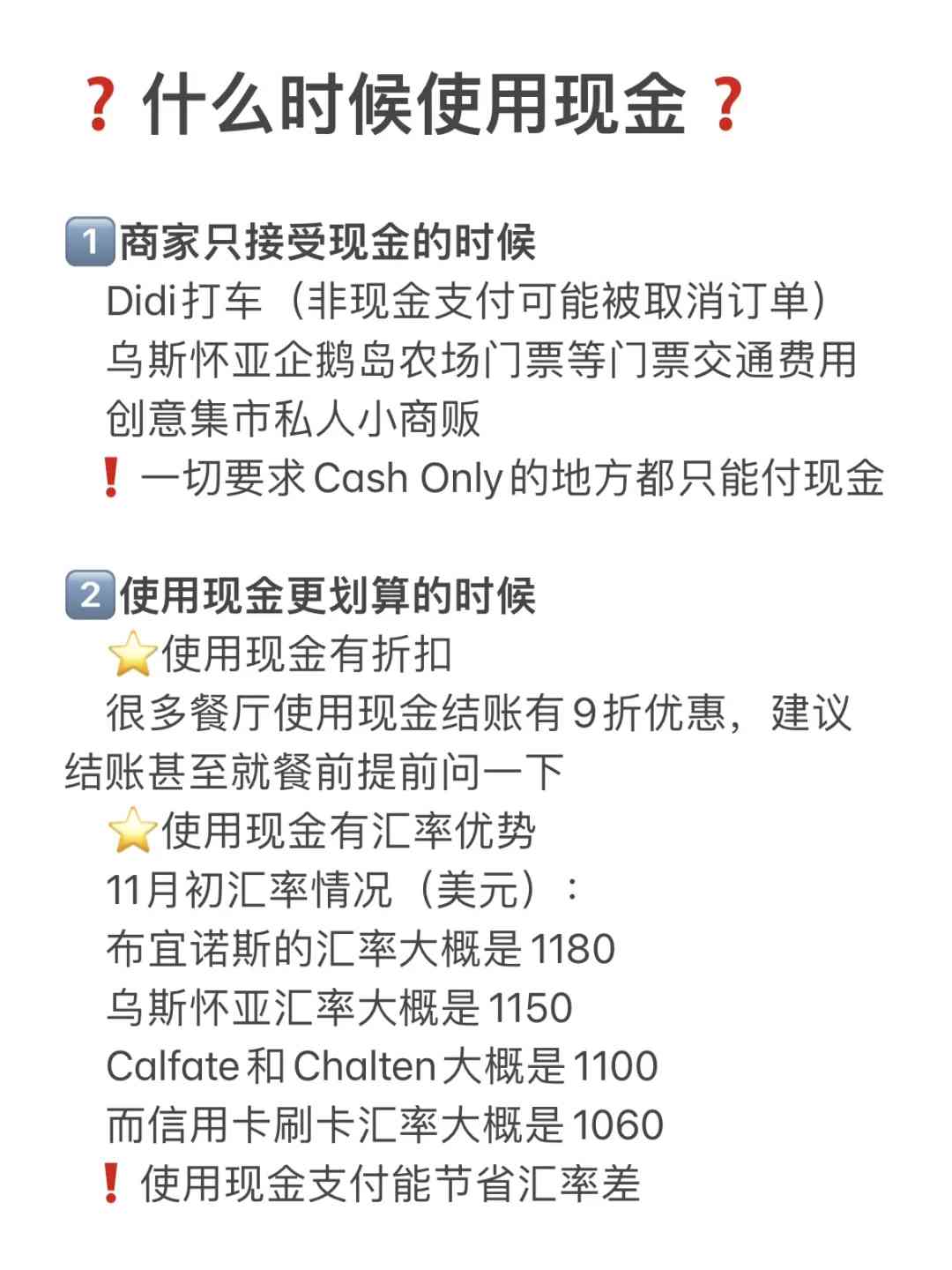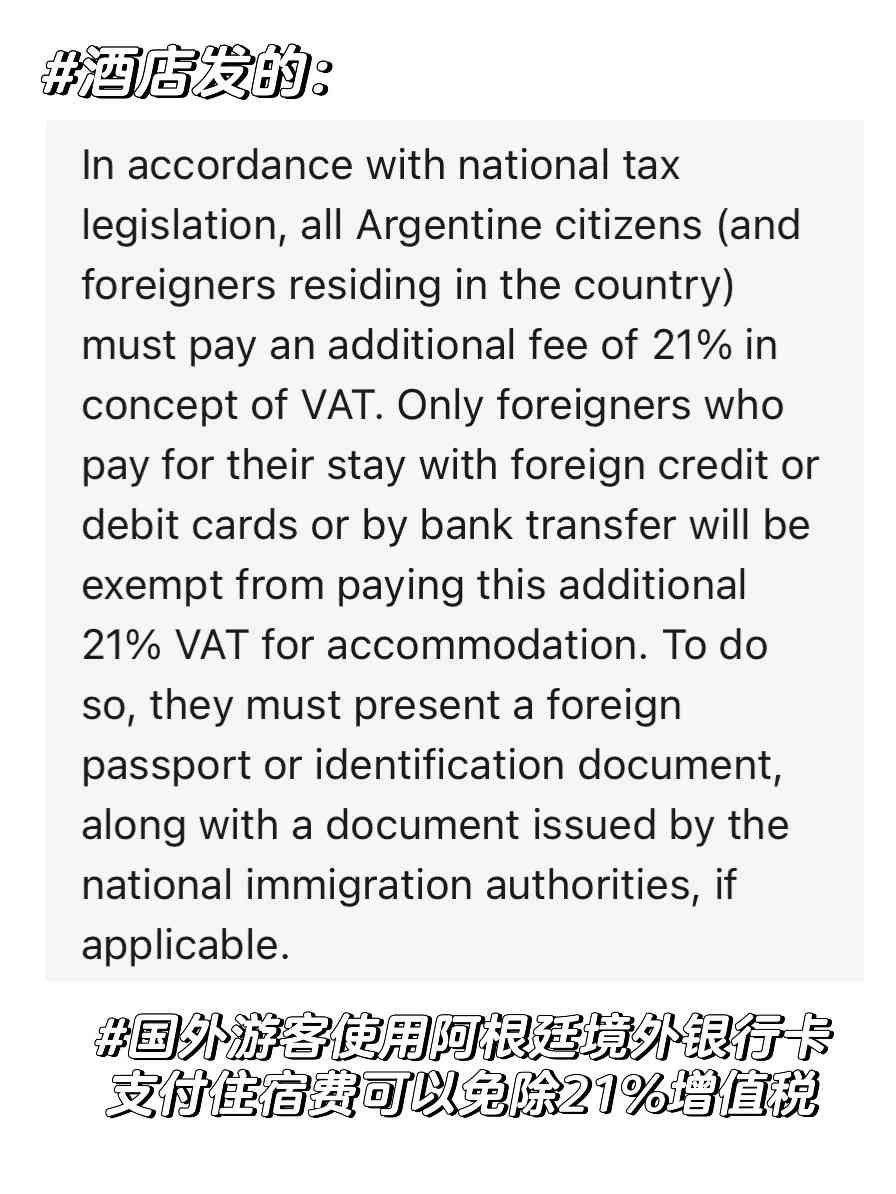Due to the soaring inflation and the high denominations over the past year, deciding how much cash to exchange has become a significant challenge for travelers heading to Argentina in 2024. Based on my personal experiences and observations from November 2024, here are some key points to consider:



For instance, when using Didi ride-hailing, some drivers may message you after accepting your order to confirm if you can pay in cash, and they might even cancel the trip if you can’t. If you don’t have cash, Uber is an alternative, but it will cost about one-third more.

To visit the penguin island from Ushuaia, you must pay the entrance fee at the farm, which also requires cash. Additionally, many creative markets in Argentina, where private vendors generally only accept cash, are popular with tourists. In short, whenever you see a “Cash Only” sign, be prepared to pay in cash.



Many restaurants offer a 10% discount if you pay in cash. Some places will list this on their menu, while others won’t, so it’s a good idea to ask before or during your meal.

During my trip in early November, the exchange rate in Buenos Aires for US dollars was around 1180, in Ushuaia it was about 1150, and in El Calafate and El Chalten, it was around 1100.

The credit card exchange rate, however, was approximately 1060. Using cash can save you on the exchange rate difference. Some merchants also accept US dollar cash, but the rate they offer is only 1000. For example, a round-trip ticket from El Chalten to El Calafate costs $35 via PayPal, but if you pay in cash on-site, it’s 35,000 pesos.

Similarly, for a gourmet cruise day trip, the travel agency PatagoniaDreams charged 288,000 pesos in cash, whereas paying in US dollar cash was $288. Considering the exchange rates, paying in pesos is often more cost-effective than using a card, though the savings are not as dramatic as they once were.



p.s. The above fees and exchange rates are current as of November 2024 and are provided for reference.

Good to know the updated cash situation in Argentina! I totally agree that having some cash is still essential, especially for smaller businesses or rideshares. The breakdown of expenses really helps when planning, like knowing to budget extra for tips even if things seem straightforward at first.